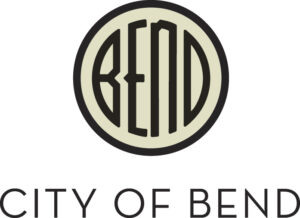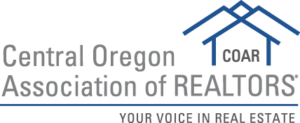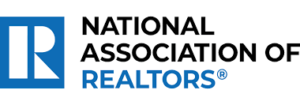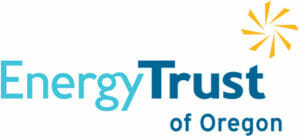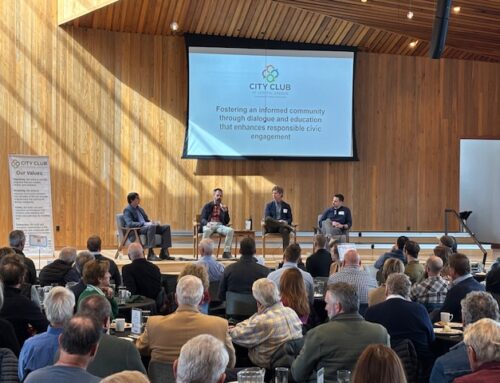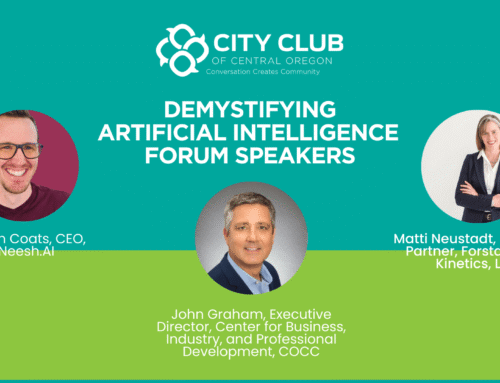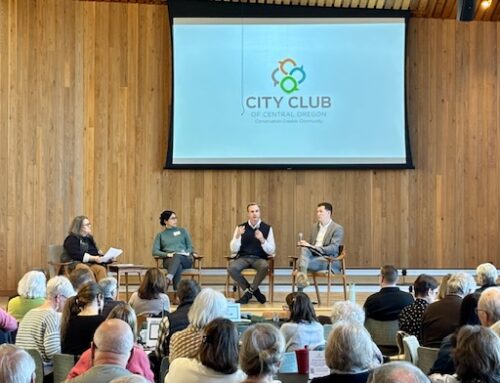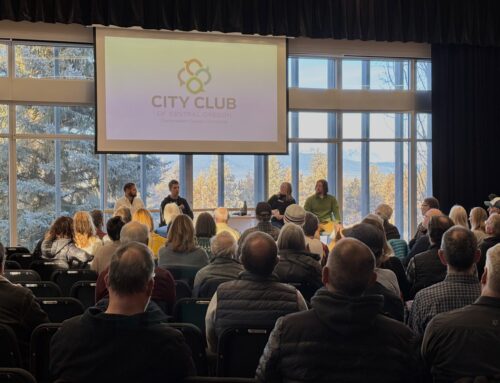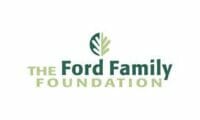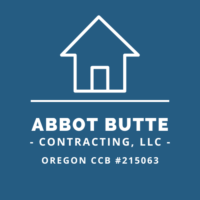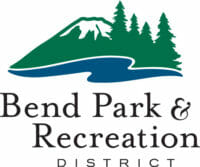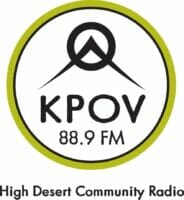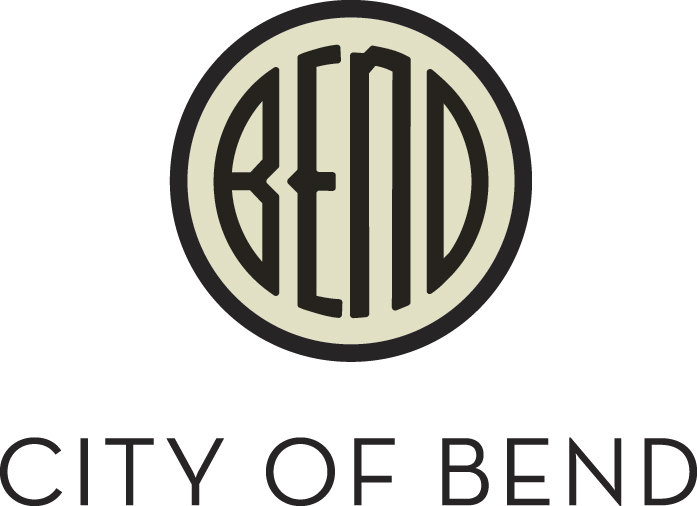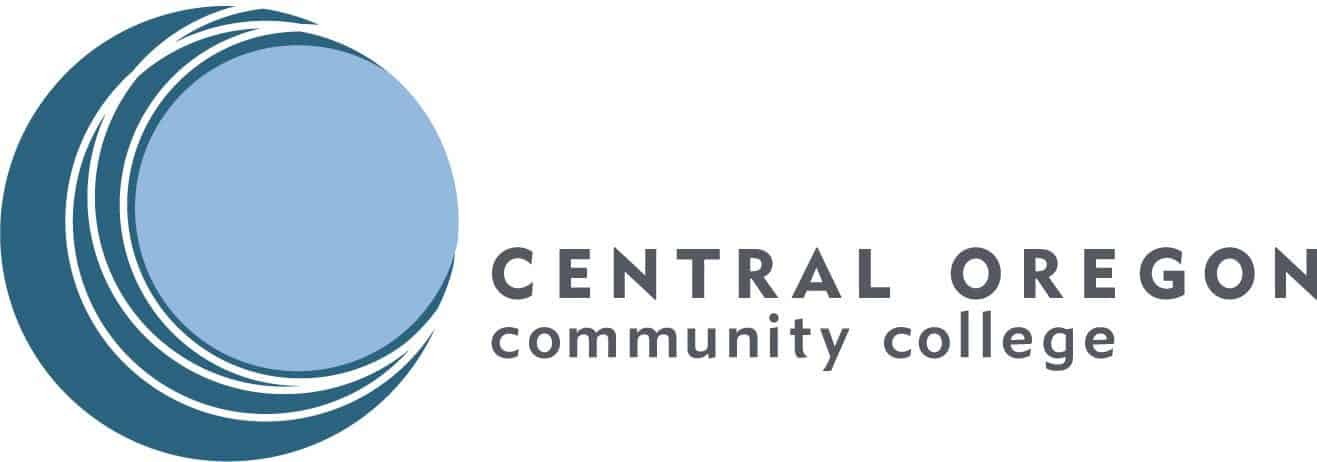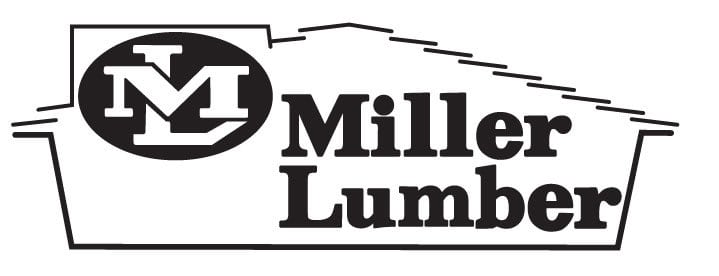UPDATE:
Gov. Tina Kotek wants to give cities a chance to bypass state land use laws. But will they?
June 15, 2023
This City Club of Central Oregon hosted nationally recognized land use expert Bill Fulton to discuss Oregon’s unique land use system which Governor McCall signed into law in 1973. Now in its 50th year, Oregon’s Land Use Act set policy aimed at preserving the state’s natural resources, managing urban growth, and promoting economic development in a sustainable manner.
The law requires local governments to designate areas for urban growth and is credited with preserving Oregon’s unique natural beauty and biodiversity by encouraging the development of compact, mixed-use communities; however, as Fulton pointed out, the 19 goals set by the law have also created challenges in meeting the housing demands of a growing population.
Quoting Governor McCall’s famous 1973 speech in which he said, “True quality of life is absent if we allow social suffering to abide in an otherwise pristine environment,” Fulton suggested that McCall would understand the need for prioritizing affordable housing and agree that some rethinking of the land use laws should be considered.
Fulton urged simplification and better coordination of statewide codes and laws, stating, “The more complicated the system is, the more it favors the status quo.” He also explained that there are many reasons and macroeconomic forces contributing to the current situation and that blame cannot just be put on the supply of development-ready land. As many other states are tackling similar problems around affordable housing, he suggested looking at other states for potential solutions and to avoid missteps.
Following Fulton’s presentation, Brenna Visser, land use communications coordinator at the City of Bend, moderated a discussion with Fulton along with community leaders who covered a diverse set of perspectives on land use laws. Visser started the panel saying, “Land use is the invisible tapestry that weaves the city together…The local community plays an integral role in determining how and where the city should develop.”
Panelist Ben Gordon of Central Oregon LandWatch stressed the need for balancing growth with prudent resource management and retaining the natural beauty and small town feel that makes Oregon home. Dave Honnicutt of Oregonians in Action and Oregon Property Owners Association questioned the broad definition of agriculture land within the state and talked about the difficulties and costs associated for developers when small groups are able to delay building projects that are within zoning guidelines, and how these costs impact supply of affordable housing.
If you live in the City of Bend and want to get more involved with local land use, consider joining your Neighborhood District (generally known as Neighborhood Associations) or attend Neighborhood Public Meetings. Each of the 13 recognized districts has an appointed land use chair that receives notices about developments happening within the boundaries of that district, and larger, citywide projects that may impact the district. Many of the Neighborhood Districts are actively searching for volunteers, including land use chairs, to step in and support keeping the community informed and offering a neighborhood perspective as development occurs in Bend. Visit bendoregon.gov/neighborhoods for more information.
Keynote: Bill Fulton
Panelists:
Bill Fulton, William Fulton Group
Ben Gordon, Central Oregon LandWatch
Dave Honnicutt, Oregonians in Action and Oregon Property Owners Association
Moderated by Brenna Visser, Land Use Communications Coordinator at the City of Bend
Resources
If you were inspired today to get more involved in land use and planning, here are some resources:
- Bill Fulton Presentation
- Building a Better Bend Lecture Series
- Fifty Years of Unique Land Use – The Source
- Central Oregon LandWatch-Celebrating 50 Years
- Oregon Property Owners Association
- City of Bend: Do you want to get more involved with land use but don’t know where to start? The answer: Joining your Neighborhood District. If you live or own a property or business in the City of Bend, you are represented by a Neighborhood District (generally known as Neighborhood Associations). Each of the 13 recognized districts has an appointed land use chair that receives notices about developments happening within the boundaries of that district, and larger, citywide projects that may impact the district. Many of the Neighborhood Districts are actively searching for volunteers, including land use chairs, to step in and support keeping the community informed and offering a neighborhood perspective as development occurs in Bend. Some duties include:
- Attending Neighborhood Public Meetings for some land uses, hosted by applicants to discuss a project before it is applied for at the City of Bend.
- Collecting comments and information from neighborhood members and provide the input to decision-makers.
- If land use is something you are passionate about and would like to get involved, visit bendoregon.gov/neighborhoods and get in contact with the land use chair in your neighborhood to learn about what opportunities there might be to volunteer.
- City of La Pine
- City of Sisters
- City of Madras
- City of Prineville
- City of Redmond
- Crook County
- Deschutes County
- Jefferson County
Sponsored by:
